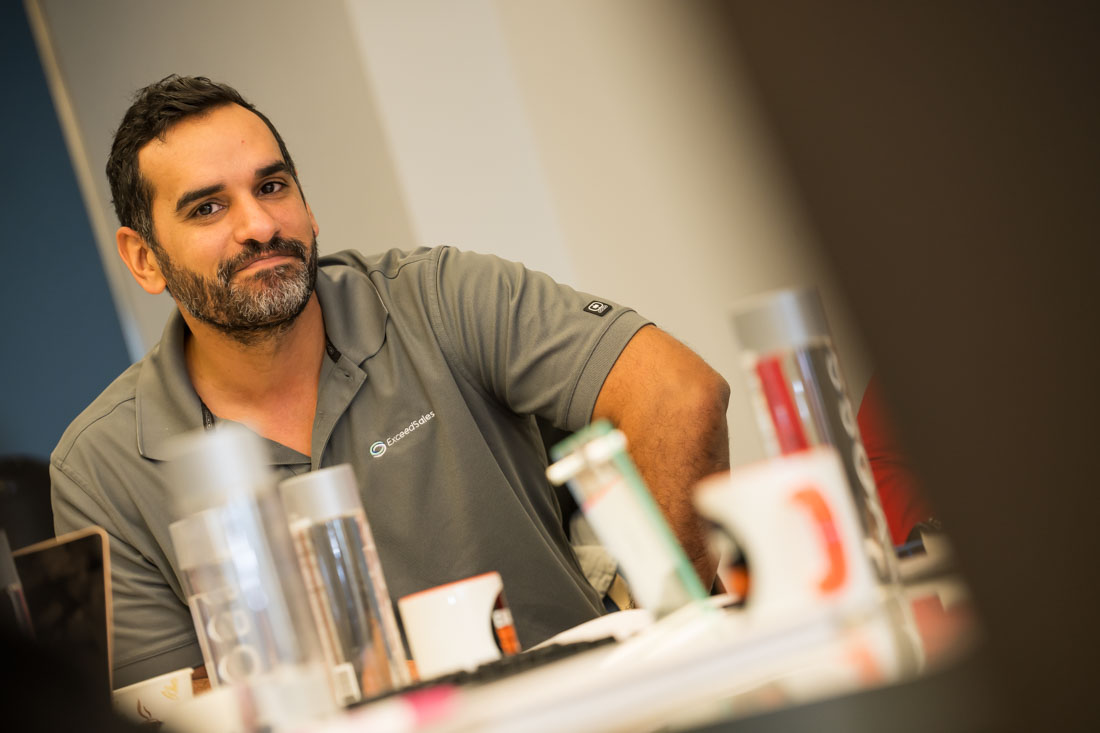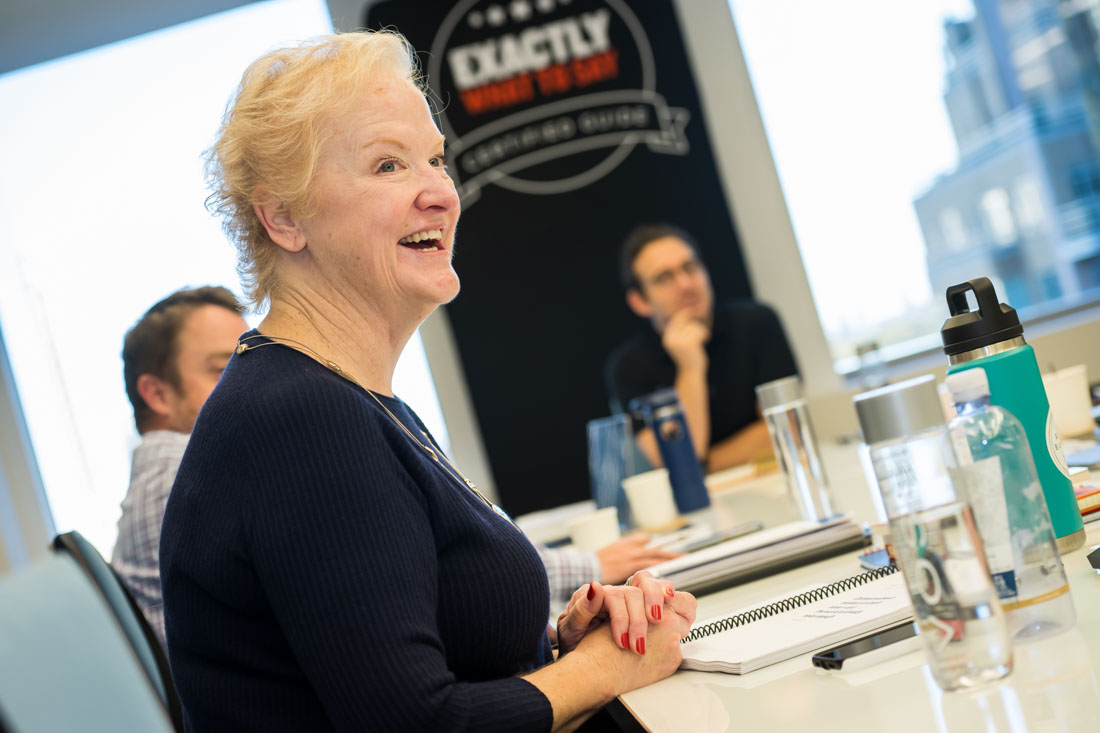The Secret To Getting It Right, The First Time
Have you ever been confronted with a critical conversation that you weren’t prepared for and then regretted how you handled it? It happens a lot. After the fact, you think of so many better responses and you wish you’d just had the space and time to consider your reply before you reacted.
There are some occasions when we can go back and redo things. Maybe with an apology first and then an explanation. But sometimes the first shot is our only shot and if we mess it up, we can’t get that opportunity back. So how do you prevent this from happening and make sure that you know exactly what to say during critical conversations?
The secret is preparation. One of the cornerstones of conversational excellence as taught by Exactly What To Say is: “The worst time to think about what you're going to say is when you need to say it.”
Joe Herrera Tweet
This is because a lot of people are excellent at addressing critical topics when they’ve been able to prepare in advance. The problem arises when they’re confronted with critical topics at a critical time and they’re NOT prepared. This makes you more likely to respond in a reactive, bullish kind of way – which often can do more harm than good.
The good news is that it’s entirely possible to prep in advance for critical conversations, even when you don’t know what the topic is going to be.
Here, I’ve laid out 5 simple steps that you can take to make sure you’re always ready to be confronted with something important. This will give you the best chance of getting the best possible outcome every time.
1. Information Is Power
If somebody wants to meet with you to discuss something, you might not have a lot of time to get ready for that conversation but you can use whatever time you do have to prepare as much as you can.
One of the ways that you can do this is by finding out what the conversation is going to be about.
So if you get an email saying, “hey, can I pick your brains about something”, or “do you have time for a chat tomorrow?”, you can find out what the subject of the conversation is going to be, by responding with: “Absolutely. So I can prepare properly for this conversation, what is it that we’re going to be talking about?”
That gives you the ability to find out the subject of the conversation ahead of time so you’ll be much more prepared and therefore, much more relaxed and able to formulate a better response.
2. Curiosity Kills Conflict
One of the best ways to be prepared to begin a critical conversation is to openly express curiosity about what the other person wants to discuss. Genuine curiosity breeds empathy and this is vital for constructive communication.
If you come to the conversation with a preconceived idea about what the topic is or what that person wants from you, you run the risk of causing unnecessary conflict. If you decide you already know what’s going on, you’re unlikely to be truly listening and receiving the information you’re being given.
Instead, you want to be curious about what they want to talk about and why they want to talk about it. This will prepare you to respond empathetically because you can now see things from their point of view.
3. Open Minds Open Doors
If you enter into conversations with colleagues, clients, or even family members with a closed-minded attitude, you’re likely to do more harm than good. You won’t be openly listening and responding objectively.
So how do you make sure you’re keeping an open mind? One simple strategy I use takes just a few seconds and makes a big difference.
I go to the bathroom just a few minutes before walking into a room to have a conversation with somebody and I tell myself, “Hey Joe, we’re going to be open-minded today.”
Reminding yourself that you don’t know everything and that other people may have something that you can learn from will get you into an open-minded space so you can see things from their point of you. Practising being an open-minded individual will allow you to gain empathy.
Empathy can be defined as; caring about the things that the people you care about, care about. So if you really care, then you’re going to respond with their best interests in mind, not just your own. This attitude will open doors and learning opportunities for them as well as yourself.
4. Preparation Is Relaxing
What’s the number 1 factor that creates conflict and difficulty when it comes to understanding others? It’s stress, of course.
If you’re stressed, you’re likely to react instead of respond. This can quickly lead to conflict and miscommunication because when you react out of emotion, you’re often irrational.
So how can you reduce your stress levels to give yourself the best chance of reacting rationally to a conversation? The answer is better preparation.
It’s the same for any difficult thing you may have to undertake in life. The more prepared you are in advance, the less stress you’ll experience when you need to perform. Doing the work before the work will help you to be a rational thinker, a rational speaker, and a rational communicator to enable you to get the best possible outcome from the conversation.
5. Make Room For ‘Maybe’
We usually define a successful conversation by the outcome. And many people believe that the only successful outcome is one where you were able to get somebody to move away from their original position and meet you at your position. Or vice versa.
But this isn’t the only version of success. Sometimes you can have success if you can make room for ‘maybe’.
Especially if there’s not a time element attached to a decision, a ‘maybe’ can be seen as a great victory. You’ve moved somebody from their original position, now closer to yours. A ‘maybe’ is somewhere in the middle and this is an achievement.
Integrity Is Integral
Critical conversations can be one of the hardest aspects of business and family life. But if you follow these 5 steps, you can be confident that you’re in the best possible position to get your desired outcome.
When you know what you’re discussing and you’re curious, open-minded and relaxed, you can make room for ‘maybe’ and really empathise with the person you’re speaking with.
This leads to results and solutions that not only bring happiness and joy to your world, but also to the world of the people around you.











